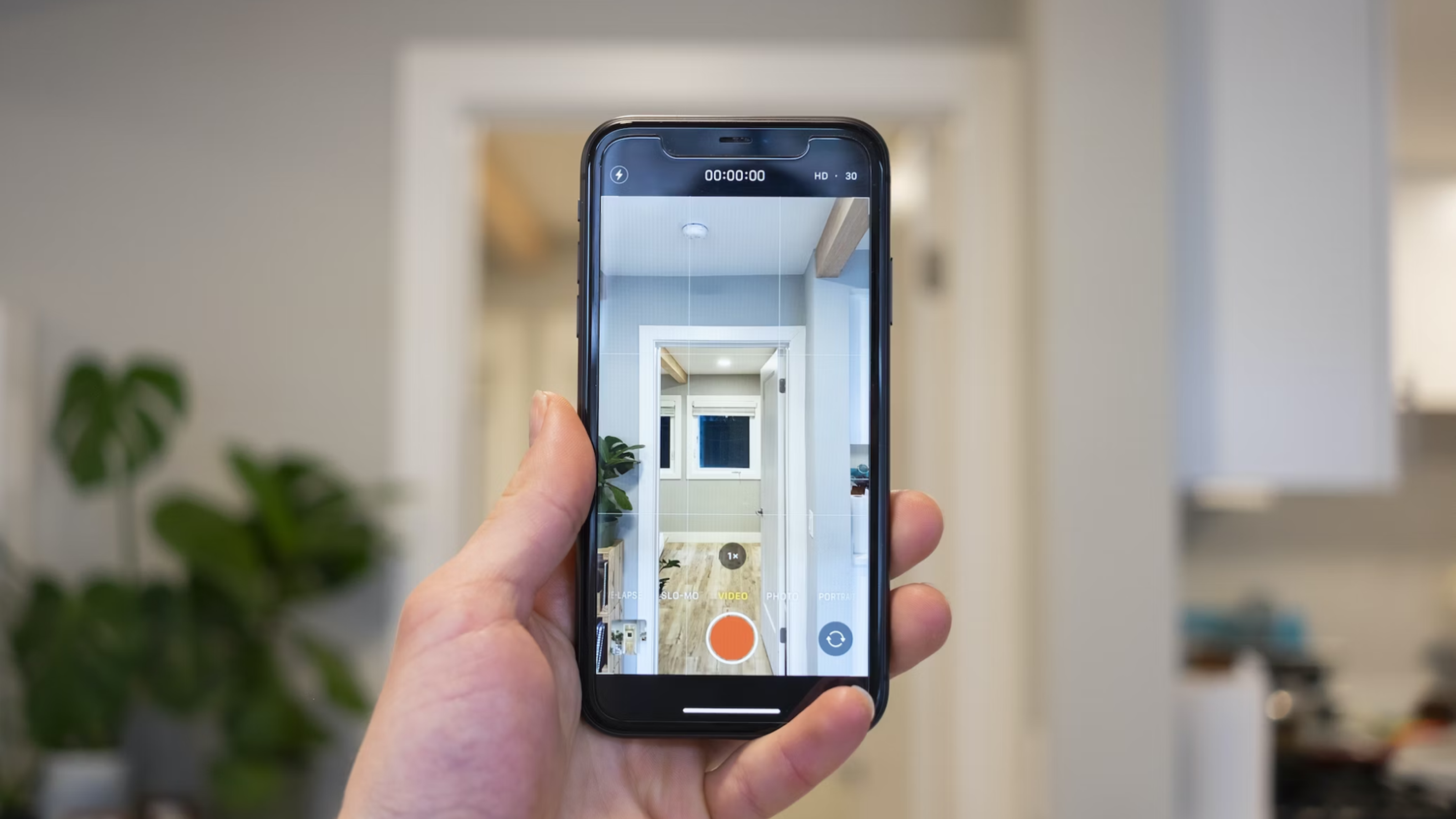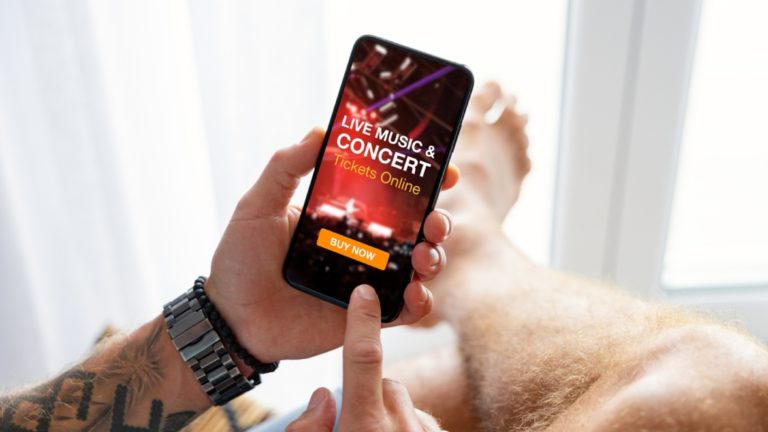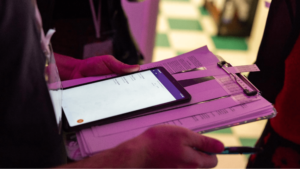To create an event app or not to create an event app — now that’s a tough question.
Custom event apps help put a creative spin on event registration. But… coding is harder than TikTok makes it out to be.
There’s always the option of trying to find the right no-code host that’s reliable and trustworthy — but let’s be honest, that’s no walk in the park either.
So what’s the alternative? An event management software like Eventbrite.
At Eventbrite, we’ve helped sell 284 million tickets in 180 countries. Since 2006, we’ve partnered with all kinds of event creators, from underground venues to unique local artists to business workshops.
In this article, we’ll help you decide if creating an event app is really the best option for you or if using an event platform ticks all the boxes.

Is creating an event app necessary?
Undoubtedly, having an app in the Google Play Store that can streamline ticketing and send notifications to attendees can help strengthen your brand and nurture leads.
However, the quality of the app depends on how much money you invest in it.
For those willing to hire a professional software developer to build a mobile event app from the ground up, you could be looking at spending upwards of $15,000 for a basic IOS app — not including features like real-time data tracking.
Developing an event app can also be a time-consuming process. For instance, the UX/UI design phase alone takes up to 200 hours to complete.
Of course, there’s always the option of using a cheaper alternative, such as a no-code app builder like Jotform, that uses pre-made templates.
While this provides basic software that will do the bare minimum, such as displaying event information, it won’t allow for more advanced features.
If you’re an event creator looking for an intuitive and user-friendly solution, consider an app attached to a full event management software program. You should be able to customize your event page from the app, and tickets could be more cost-effective.

What is the best alternative to creating an event app?
With features like mobile ticketing and check-in, email marketing templates, Facebook advertising integrations, and tracking links, the best alternative might be — you guessed it — an app with comprehensive event management software (EMS) like Eventbrite.
An EMS has extensive features that can help you reach a wider audience of people actively looking for exciting events while allowing you to manage registration, payment, and marketing, all from one place.
A robust EMS can do everything an app can (and more) — for a fraction of the price.
For example, when you create an event listing on Eventbrite, it can double as a website, allowing you to add customized features, such as:
- 1–10 event photos and videos
- ‘Special collections’ for event clusters
- Custom tickets and logos that you can design with Canva

Event powerhouse Liberate Yourself uses Eventbrite to boost ticket sales and find like-minded individuals. They create imaginative thumbnails for each event listing and display a bright, colorful logo and background image.
By using an EMS like Eventbrite, you can customize your users’ experience through the app interface and the web while accessing valuable marketing tools that’ll help optimize your event ticketing, promotion, and sales.
For example, Eventbrite incorporates AI to streamline tasks such as drafting event titles and descriptions and writing follow-up emails. This feature saves time, especially for event creators like Duck Club, who host events daily.
With Eventbrite’s AI integrations, Duck Club has created better event ads 30% faster and reached audiences outside their direct sphere of influence. Eric, the CEO, says 25% of tickets are sold using Eventbrite’s discovery platform.
Event management software vs custom event apps: what you need to consider
While custom event apps can be an excellent tool for event creators to personalize their events, they also have many downsides that can outweigh the positives.
These are the top four aspects you need to consider before investing in developing your own event app.

1. Audience reach
It’s important to build a loyal community by expanding audience reach beyond your direct sphere of influence.
Eventbrite
Eventbrite is an event directory, meaning that instead of targeting audiences who view your ad in passing, you can put your event in front of warm traffic — people actively searching for events just like yours.
By using Eventbrite, you can:
- Use precise audience targeting based on the location, interests, and past attendance history
- Create ads to rank your event in the top five searches for keywords associated with your event
- Share your event with over 90 million active ticket-buyers to expand your audience
Custom event app
Generally, event creators encourage attendees to download their event app from their social media page or website. While this can be an effective strategy, it limits audience reach, especially for new attendees. You’ll have to put some serious elbow grease into spreading the word and reaching new crowds.
An event app can only complement your existing marketing tools — not substitute them.

2. Automated emails and event notifications
Automated event notifications are essential in ensuring attendees don’t miss out on important deadlines, such as early bird ticket sales.
Eventbrite
With Eventbrite, you can manage and send event notifications via email, in-app direct messages, and SMS, all from one place.
Eventbrite also automatically sends notifications such as ‘abandoned registration reminder’ emails to customers who have left your event page before completing checkout. This can increase your chance of turning leads into sales.
By using Eventbrite, you can:
- Use AI-powered tools to craft effective email campaigns and send up to 10,000 emails per day
- Keep track of people who have ‘liked’ your events or saved your profile to favorites
- Take advantage of Eventbrite’s Mailchimp integration to track and analyze data from your email campaigns, such as the best time of day to send emails
For example, Sierra Nevada uses Eventbrite to design impactful email campaigns in the weeks leading up to their events. Using Eventbrite’s data analytics and targeting tools, Sierra Nevada Brewing Co. has achieved a 39.9% email opening rate.
Custom event app
Event apps are limited in their ability to provide automated event notifications.
For example, Buildfire apps rely on ‘push notifications.’ Therefore, if users fail to enable notifications for any reason, they’ll miss out on all important in-app updates entirely.
If you invest enough and have a professional developer get involved, you can create integrations that may allow you to automate emails and notifications. However, this will require a bigger investment in both time and money.

3. Creating and selling tickets
Using a reliable ticketing platform is integral in helping you keep track of attendance and capacity and ensuring a smooth ticketing experience for your attendees.
Eventbrite
Eventbrite sold over 84 million tickets to attendees all over the world and drove 30% of paid tickets in 2022. It’s a well-established and reliable brand, which increases event goers’ confidence in sharing sensitive information, such as payment details. This reduces the risk of abandoned sales.
Eventbrite simplifies the process of creating and selling tickets by offering a user-friendly platform where event creators can take advantage of a secure and seamless embedded checkout.
By using Eventbrite, you can:
- Design custom ticket types for in-person and virtual events, as well as promo codes
- Offer onsite payment processing for tickets and merchandise
- Set up flexible event payouts so you can receive an advance on ticket sales before your event takes place
For example, when Fitter and Faster began in 2009, they built their custom app to manage ticketing and event registration — but managing 1,000 sessions in 47 states proved too time-consuming and risky.
Switching to Eventbrite streamlined their ticketing process and ensured all payment and personal information shared by event attendees was stored in a secure place.
Create and sell customized tickets today!

Custom event app
Most basic event apps don’t offer embedded checkouts, especially if you’re using a pre-made template. This means that attendees will be redirected to a third-party payment platform, like PayPal.
Redirecting attendees can impact your perceived trustworthiness and professionalism, leading to higher abandonment rates. It can also increase the risk of cyber attacks, meaning you’ll need additional security measures — at an extra cost.
4. Analytics and data insights
Without quality event data, understanding what attendees respond positively (or negatively) to can be difficult. Without that information, you’ll be lacking important insights that can influence your event strategy.

Eventbrite
With Eventbrite, you can track key metrics, not just on the platform but from all traffic sources, such as Google, Facebook, and Instagram.
This allows you to gain actionable feedback on how to optimize your event and increase ticket sales.
By using Eventbrite, you can:
- View sales or attendee data insights for specific or multiple events over a period of time
- Get detailed audience reports on how your audience responds to your brand, such as how many of your page views are from stationary or mobile devices
- Understand what channels drive traffic to your event page and successfully convert into ticket sales
We’ve developed these features because we understand that collecting data is only half the battle — comprehending it is the other.
Custom event app
Event apps, such as the AI event app builder AppyPie, can give you basic app analytics.
However, the true value of event data lies in understanding what the data is telling you about specific elements of your event.
To make use of the information you gain, you need comprehensive analytics and simplified reporting, so it’s easy to leverage data insights to your advantage without getting bogged down in numbers and statistics.
Should you create an event app or not?
We get it — figuring out whether building a customized event app is the right choice for you is a hard decision.
To simplify things, we think of it this way.
If you’re prepared to invest a lot of time and money into creating a spectacular event app, then, by all means, go right ahead and do so.
However, if you’re looking to build a loyal community, optimize ticket sales, and get real-time data insights immediately — without blowing your budget — then Eventbrite is a simpler, faster, and more cost-effective option.






